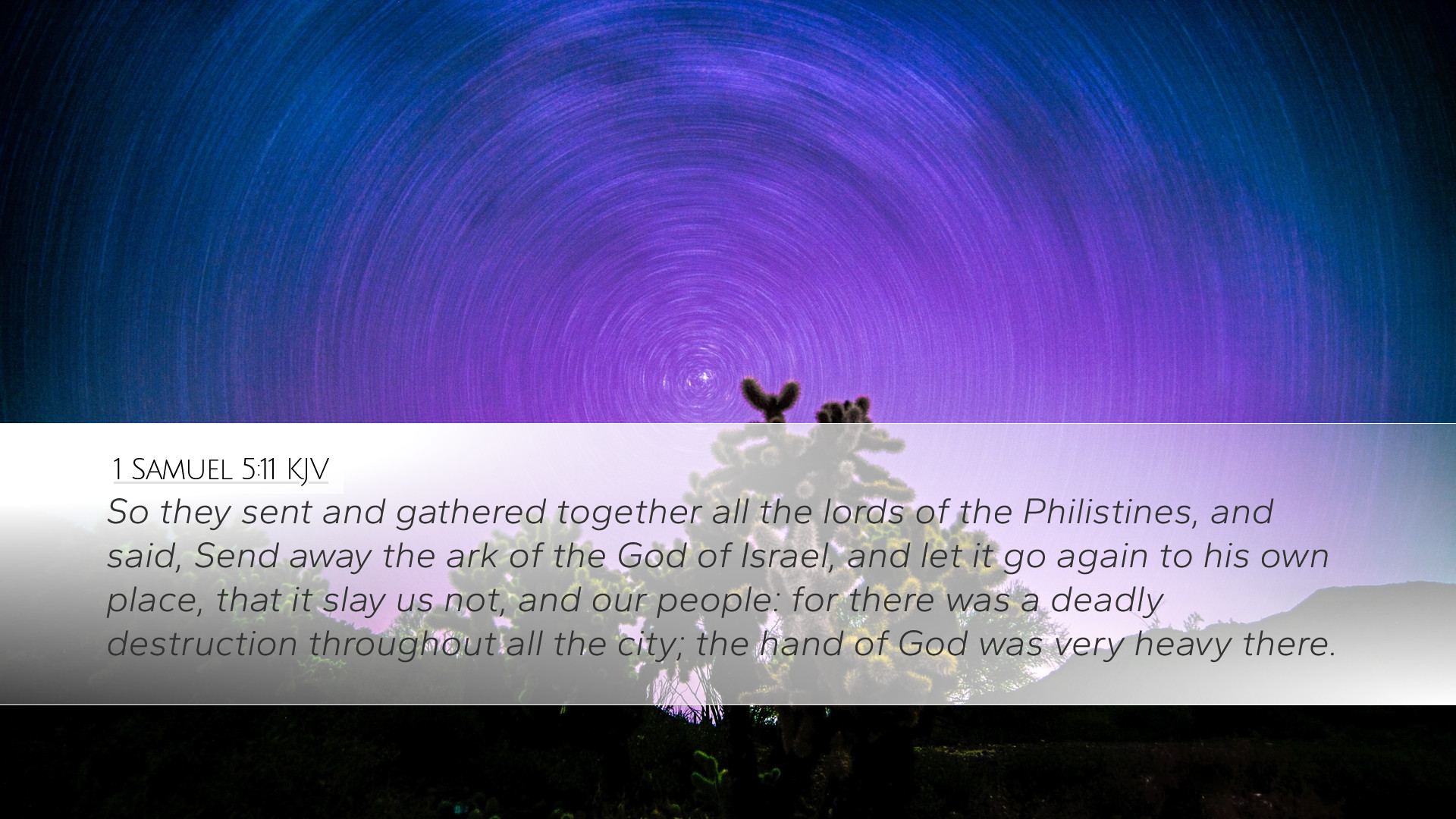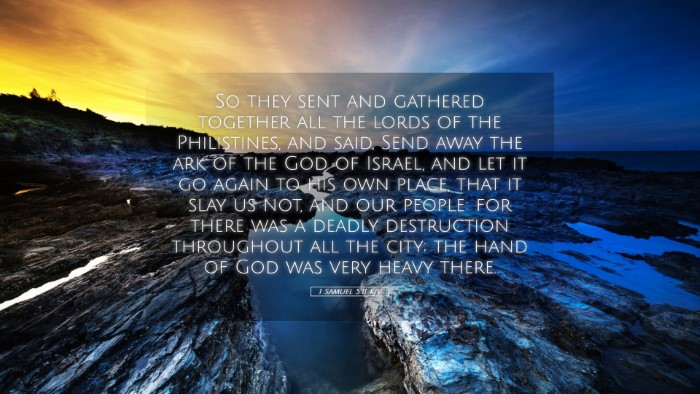Commentary on 1 Samuel 5:11
Verse Context: 1 Samuel 5:11 states, “So they sent and gathered together all the lords of the Philistines, and said, ‘Send away the ark of the God of Israel, and let it go again to its own place, that it slay us not, and our people: for there was a deadly destruction throughout all the city; the hand of God was very heavy there.’” This verse reflects the tumultuous interaction between Israel and the Philistines, particularly surrounding the captured Ark of the Covenant.
Historical Background
The Ark of the Covenant represented the presence of God among His people, Israel. Its capture by the Philistines during a battle marked a significant moment in Israel's history, demonstrating God’s sovereignty and the serious consequences of sin. The Philistines, having captured the Ark, experienced a series of calamities which they attributed to the presence of the Ark.
Theological Insights
This passage serves as a vital reminder of the holiness of God and the consequences of disrespecting His presence. The Philistines, whilst triumphant in battle, quickly realized the gravity of their actions. Their recognition of the power of the God of Israel stands as a testament to God’s supremacy over false gods.
Commentary Insights
Matthew Henry
Matthew Henry highlights the Philistines' response to their plight. He notes, “They could not bear the weight of God’s hand upon them, nor the terror of His judgments.” This illustrates the concept that the enemies of God often face dire consequences when they presume to act against His will. Henry points out how the acknowledgment of God's might comes not from the faithfulness of the Philistines, but rather from their sheer desperation during their suffering.
Albert Barnes
Albert Barnes emphasizes the fear and confusion that overwhelmed the Philistines. He writes, “Their acknowledgment of the necessity of sending the ark away expresses the humility that follows calamity.” Barnes argues that this moment is significant for understanding the heart's disposition towards God when faced with judgment. The Philistines, despite their might, found themselves in utter disarray when opposing the God of Israel, highlighting God's justice and mercy even in the face of their rebellion.
Adam Clarke
Adam Clarke brings further dimension by explaining the ‘deadly destruction’ that spread across the cities of the Philistines. He notes that this reflects God’s direct intervention in human affairs—a theme prevalent in the Scriptures. Clarke stresses that God’s hand was ‘very heavy’ upon them, indicating not just physical suffering but a spiritual confrontation. The implications here speak volumes to the nature of God’s justice that extends beyond mere physical affliction, inviting reflection on the spiritual condition of individuals and nations.
Practical Applications
This passage operates on several levels, offering critical insights for pastors, students, theologians, and Bible scholars:
- The Sovereignty of God: The narrative illustrates the sovereignty of God over the affairs of nations. Pastors can use this as a reminder that God is in control despite the prevailing circumstances.
- The Consequences of Sin: The plight of the Philistines serves as a warning about the repercussions of living against God’s commandments, highlighting the intrinsic holiness of God.
- The Need for Repentance: The Philistine leaders’ decision to return the Ark reflects a desire for reconciliation, underscoring the importance of repentance when confronted with God’s judgment.
- The Impact of God’s Presence: This account illustrates the transformative power of God’s presence—whether it brings judgment or blessing, it elicits a response that can lead to humility or further hardness of heart.
Conclusion
1 Samuel 5:11 presents not only a historical account but also profound theological truths. The responses of the Philistines serve as a poignant reminder of God’s authority and the reverence due to Him. As pastors and students of the Bible engage with this text, it calls them to reflect on their own response to God’s presence in their lives, urging a posture of humility and accord with His will.


